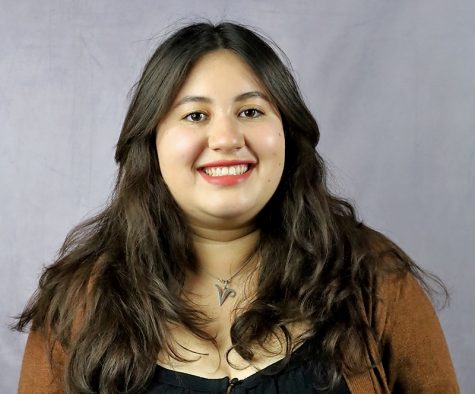UTEP professor of chemistry and biochemistry Wen-Yee Lee, Ph.D., is conducting research on early detection methods for prostate cancer.
Lee was invited to join a team of researchers from the Massachusetts Institute of Technology (MIT), Johns Hopkins University, Cambridge Polymer Group, Prostate Cancer Foundation, Harvard University, among others, to develop a detector for prostate cancer.
The detector mimics a canine nose and brain, which according to Lee, is 200 times more sensitive to locate chemical and microbial content of an air sample to help detect prostate cancer. The overall goal is to make the device accessible through cellphones and help determine various cancer types in the future.
Lee started her research in 2012, after reading an article claiming dogs and cats can smell and detect several types of diseases.
“So that was the inspiration; I actually mimic the dog,” Lee said. “If a dog can do it, we can do better. So, in fact, that is where the idea came from, the drive to compete with dogs.”
Lee decided to center her research on prostate cancer, one of the leading causes of cancer death among men, because she wanted to focus on a gender-specific type of cancer.
“Originally, I was thinking about doing breast cancer as well because breast cancer again is a little gender-specific. Even though a few males will also have breast cancer, but it is relatively at a much less degree,” Lee said. “But I was not able to establish a steady source of supply.”
The research compares various compounds found in urine samples from a cancerous group and a non-cancerous group.
Lee said she uses urine samples due to UTEP’s limited supplies and their less intrusive ability than blood samples, as they do not require a certified nurse to be present with the researcher.
“Urine has more volume,” Lee said. “You easily can give me 15 milliliters of urine sample, but you would not be able to give 15 milliliters of saliva or sweat even.”
Although the research project is still at an early stage, Lee hopes that if her study is successful, it can help the health system and benefit those who don’t have good medical insurance or don’t have the financial ability to get medical procedures done.
“If this technique that I am developing is mature, then I can actually pack everything up in a mobile vehicle, or an RV, and I can drive this vehicle to every location and just have them pee in a cup, and I can do the analysis,” Lee said. “I don’t need any medical personnel to go with me.”
Lee said the research aims to create a good early detection method that is accurate, easy, and culturally sensitive.
“This is just something that I can see happening, if more research is poured into it,” Lee said. “I’m sure this can be done; we just need to validate it.”
Up to now, Lee’s research method has shown 90% accuracy and has proven to work on prostate and kidney cancer. She hopes to expand her research in the future by helping detect bladder and breast cancer.
Victoria Rivas may be reached at [email protected]; @VicRivas_18 on Twitter.













